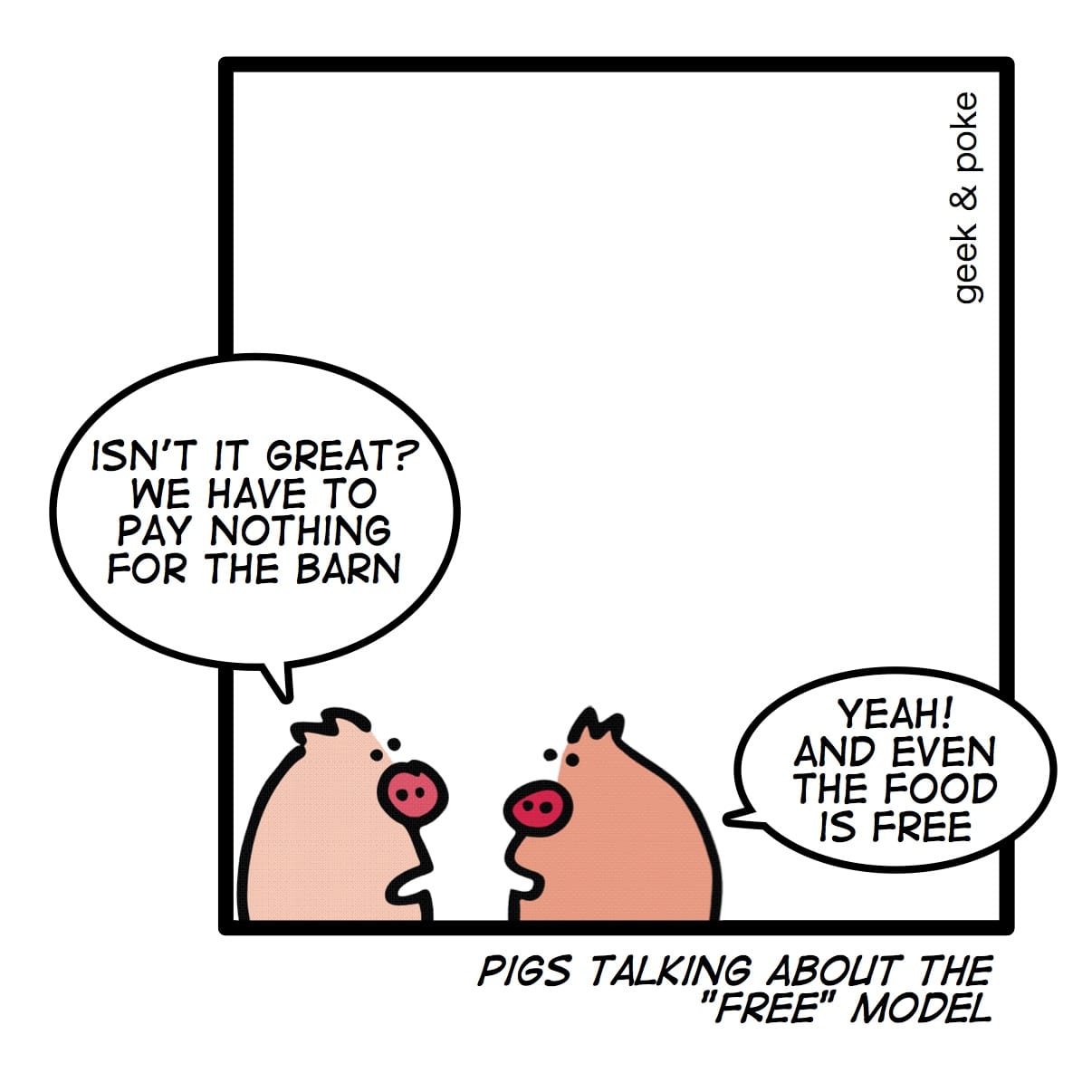Honest apps and GBD (greed-based development)
There are many sorts of categories for software. There are:
- Functional categories, like productivity, communication, dev-tools, or entertainment.
- Environment, or context, like personal, SME, or corporate.
- Publishing types: OSS or proprietary.
- Platform based: desktop, mobile, web, etc.
And many more.
There’s just one type of categorisation that I haven’t seen before, that I would like to see more of. Maybe we could call it “intention based”. In this group, there would be only two categories: honest apps, and everything else.
Honest apps
These are applications that
- do not use dark UX patterns,
- do not track nor sell your personal data,
- do not have hidden fees, vendor lock-ins, or any other shady practices.
- They can be free or paid, or even subscription-based, when it makes sense and is justified by ongoing costs for third-party services.
- There should never be any doubt about how everything works and what’s going on behind the scenes. Full transparency and clarity are essential.
Everything else
Anything that doesn’t fit in the first category, would automatically become a dishonest app.
This includes everything from pure malware to maybe-not-so-bad apps but ones which are badly advertised, distributed or sold.
Where owners or vendors are trying to extract as much as possible from users, packing in trackers, ads or even requesting personal data without a reason.
Recently, with all the year-end “sales”, one dark pattern was overused, where the price of the software was increased significantly just before the “sale” so the discount that followed seemed greater. In my book, such apps are automatically placed in the second group.
Examples of honest apps
- Things — one of the best (if not the best) 3rd party app for Mac. Simple, transparent, and well… honest.
- iTerm2 — yes, it did jump on the AI train, but all AI features require a special plugin, and are opt-in rather than forced on the users. Besides, it's a freeware, and the best terminal app for Mac for a very long time.
- Ulysses — is a subscription app, but it offers a free trial, and full export options (and read-only mode) when your subscription expires, so you can still export your data and use it in another app (it's also markdown-based, so no vendor lock-in).
- Reeder app — I've been using it since v2, and the last one redefined the way I consume the internets. And I love it so far. But the author and the app were always very transparent, clear, and without any shady practices. You get what you see and that's it. Your data is your own. No compromises.
- Sindre Sorhus apps — apps that advertise themselves. Apps that are developed for the users, and not for profit. The way it should be.
Examples of dishonest apps & services
- Almost every app that uses AI. There are some exceptions, where an app is just a UI on top of the API, but otherwise, most apps that add AI to their feature set, do that for hype and profit.
- All apps that big corporations provide "for free" to regular people. So all google suite apps, MS Office apps, social sites like FB, X, YT, and the like.
- Almost all online shopping sites (amazon, eBay, temu, etc.)
- And last but worst of all: AI LLMs, which were built from the freely available information and turned into a hard-profit business. Some might say that the end justifies the means, and AI is pushing humanity into the new age, but if you look more closely, and try to understand what's actually going on, you may discover that it's doing the opposite: pushing computers forward, while holding humanity hostage, and turning Homo sapiens into cattle, which can then be connected to some automated electronic population control and milking system.
Conclusion
While sometimes unavoidable, personally I'd like to stay away from software with uses dubious practices and dark UX patterns. I condemn such software, its authors, publishers, and developers.
I've really struggled to find good examples of honest apps. Even from the ones I have installed on my machine, there were only a few really good ones.
I think that we don't have enough honest apps. Therefore, we should support them when they appear and use them whenever we can, instead of falling-back to the easily available corporate crap that we're being served daily, and for "free".

Member discussion